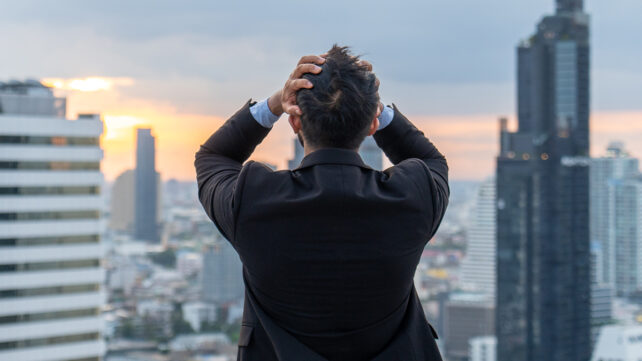Rising cases of chronic stress could be down to a mismatch between modern living and our own biology, according to a new study. Simply put, we're suited to being in natural spaces, not built-up cities.
That's the conclusion reached by two evolutionary anthropologists, Colin Shaw from the University of Zurich in Switzerland and Daniel Longman from Loughborough University in the UK.
They pulled together a wealth of evidence that suggests our biological evolution is being outpaced by rapid technological and environmental transformations.
Daily lives filled with triggers that put us slightly on edge, from overflowing inboxes to construction noise to work deadlines, are combining to put our bodies on alert around the clock – something that hasn't been the case for much of human history.
Related: Stress-Sensitive Neurons May Have a Powerful Effect on Our Entire Brain
"In our ancestral state, we were well-adapted to deal with acute stress to evade or confront predators," says Shaw. "Fight or flight. The lion would come around occasionally, and you had to be ready to defend yourself – or run.
"The key is that the lion goes away again. Such an all-out effort guaranteed survival, but it was very costly and required lengthy recovery."

This is causing widespread damage, the researchers argue: cognitive decline, autoimmune diseases, and falling fertility rates could all be connected to the stress of modern life in busy, urban environments.
The studies reviewed here are many and wide-ranging, and cover evidence of poorer fitness in urban areas, links between air pollution and brain damage, and associations between an inferior immune system and industrialized environments.
All these different stressors – from artificial light to microplastic exposure – combined with more sedentary lifestyles, are adding up to damage our health in a variety of ways, explain the researchers in their paper.
"Whether it's a difficult discussion with your partner or your boss, or traffic noise, your stress response system is still pretty much the same as if you were facing lion after lion after lion," says Shaw.
"As a result, you have this very powerful response from your nervous system, but no comedown."
The review is a comprehensive summary of everything researchers have discovered so far about the potential downsides of our 21st-century lives and environments. We've made many transformative advancements in healthcare, technology, and our understanding of the world – but as a species, we're also more anxious and depressed than our ancestors.
Multiple studies have shown that spending time in nature – or even just looking at photos of nature – can improve physical and mental health. In evolutionary terms, being outdoors in nature is still where human beings want to be.
And that gives us some clues as to what to do about dealing with the issues raised by this review. Shaw and Longman want to see more done to preserve green areas in urban environments, to protect the natural landscapes we have left, and to provide spaces where people can actually switch off.
"Our research can identify which stimuli most affect blood pressure or heart rate and pass that knowledge on to decision-makers," says Shaw.
"We need to get our cities right – and at the same time regenerate, value and spend more time in natural spaces."
The research has been published in Biological Reviews.

